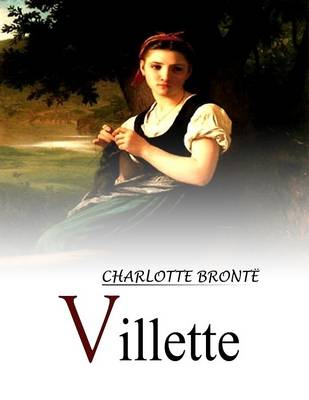Villette

As seen:
Reviews
St Just Monday Morning Reading Group 30th January 2023.
Villette. Charlotte Brontë.
Most of the group liked this book; some had reservations and one or two found it hard going and gave up before the end. The idea of reading a classic, instead of a modern novel, over December and January, was generally thought to be a good one.
We all agreed that this was a long read, highly descriptive, and requiring the reader’s concentration – not a book that it is possible to speed-read – but rewarding. As well as Lucy Snowe’s career trajectory and her thoughts and emotions and those of the other characters, the book addresses many other issues, particularly the Protestant/Catholic debate, and the place of women in society at the time in both France and England. Many readers noted Lucy’s courage in setting off for France, alone, and without any offer of employment or accommodation.
Several people thought that this was a better book than Jane Eyre, with more fully developed characters and more description and interest; not everyone held that opinion, however.
We talked about what elements make this a ‘Gothic’ novel, and decided upon the references to ghosts, and to sinister priests. One reader suggested that this book was heavily influenced by Mary Shelley’s Frankenstein; another compared it with Dickens’ Great Expectations.
We noted the dramatic interjections in the narrative, for instance the thunderstorms, and tempests of emotion as well, in which the writing style seems suddenly to change and sometimes appears more modern. We also discussed how Lucy Snowe deceives the reader; lies to us, almost, in not mentioning that John Bretton and Paulina, when she meets them in France, are people she knew from previous acquaintance in England. Obviously Lucy is a complex character (much more so than Jane Eyre, some held).
We spent a while talking about the other characters as well. Paul Emanuel, we decided, is also contradictory. Has Lucy got his measure, or does she secretly want to be dominated? Genevra, though portrayed as shallow and perhaps slightly immoral, is realistic in assessing her own economic position and in seeing that she needs to marry someone. Despite her possible shortcomings she settles down with her husband and raises a family in an exemplary fashion. Her character contrasts with that of Paulina (and also Dr John Bretton), who are in some senses ‘too good to be true’. Mme Beck holds down her position as head mistress of her school by means of spying and manipulation. Mrs Bretton is unfailingly kind and hospitable to everyone she meets. Charlotte Bronte, we thought, obviously saw all this with great clarity.
The amount of French dialogue in the book put some readers off, as did the extended flights of fancy and elaborate descriptions. But on the whole, the group reported that they got quite a lot out of reading this book. We read different editions of it, some better than others, and some with illustrations. We ended with a discussion of other Victorian novels, and various English teachers who inspired us to read them.






